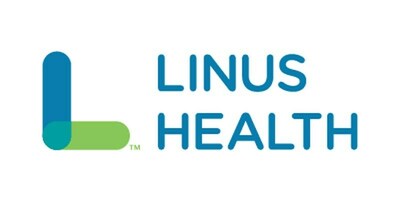Rewriting the Timeline of Detection: Linus Health's Digital Platform Uncovers the Earliest Signs of Cognitive Decline
New research reveals that subtle response-time biomarkers—captured in minutes via digital assessments—can flag Alzheimer's and dementia risk far earlier than traditional methods
BOSTON, June 26, 2025 /PRNewswire/ -- A pioneering study recently published in the Journal of Alzheimer's Disease highlights how efficiently digital assessments can uncover the earliest signs of cognitive impairment—likely years before traditional testing methods or noticeable symptoms emerge. The narrative review and synthesis study is titled, "Precision neurocognition: An emerging diagnostic paradigm leveraging digital cognitive assessment technology."
The study's lead authors are David J. Libon, PhD, professor at the New Jersey Institute for Successful Aging at Rowan University, and Rod Swenson, PhD, clinical professor of Psychiatry and Behavioral Science at the University of North Dakota School of Medicine and Health Sciences. Both are advisors to Linus Health, which is revolutionizing brain health with science-driven digital solutions.
The findings demonstrate how a 7-minute speech-based digital cognitive assessment from Linus Health captures quantifiable data on neurodegenerative disease risk based on patients' process of answering questions and test prompts.
In the peer-reviewed article, Libon and Swenson introduce a series of novel digital biomarkers based on latency—the pauses and reaction times between actions—when responding to questions or test prompts. They describe how subtle changes in the time required to respond—even when answers are 100% correct—can be interpreted as biomarkers for identifying the risk of mild cognitive impairment (MCI), Alzheimer's disease and other forms of dementia.
"As our review demonstrates, just because an individual answers a question on a digital assessment 100% correctly does not mean a 0% risk of cognitive impairment," Libon said. "We have shown here that the time it takes to correctly respond or recruit the necessary brain regions or strategies for efficient correct responding likely provides rich information regarding the probability of the eventual emergence of serious cognitive decline."
Libon and Swenson's paradigm is based on principles drawn from the Boston Process Approach (BPA), a neuropsychological assessment framework that derives cognitive function insights from a participant's process of completing cognitive tasks, not just their answer. The BPA progenitor was Edith Kaplan, PhD, whom Libon and Swenson trained under and then continued to collaborate with for decades. They have been active clinicians and researchers in neuropsychology for their entire careers.
"We hypothesize in this paper that a 7-minute Linus Health digital assessment supervised by an assistant can effectively replace hours of traditional, pen-and-paper testing conducted and interpreted by a neuropsychologist," Swenson said. "This time savings and efficiency make Linus Health's platform imminently scalable for healthcare providers, supporting earlier, more precise clinical decision support without adding burden to busy clinical workflows."
Unlike conventional scoring, Linus Health solutions track milliseconds of latency undetectable to the human eye. These subtle changes were found to distinguish individuals with emerging MCI or elevated Alzheimer's disease genetic risk from their peers, even when test scores appeared nearly identical to participants who did not develop a neurodegenerative condition.
"As the population ages and the need for timely cognitive impairment detection grows more urgent, precision neurocognition offers a transformative path forward," said Linus Health CEO and co-founder David Bates, PhD. "By combining high-resolution digital measurement with sophisticated, AI-powered data analysis, the Linus Health platform can help clinicians during routine office visits flag precise indicators of neurodegenerative conditions earlier to improve patients' clinical outcomes and their quality of life."
About Linus Health
Linus Health is a Boston-based digital health company focused on transforming brain health for people across the world. By advancing how we detect and address cognitive and brain disorders – leveraging cutting-edge neuroscience, clinical expertise, and artificial intelligence – our goal is to enable a future where people can live longer, happier, and healthier lives with better brain health. Linus Health's digital cognitive assessment platform delivers a proven, practical means of enabling early detection; empowers providers with actionable clinical insights; and supports individuals with personalized action plans. We are proud to partner with leading healthcare delivery organizations, research institutions, and life sciences companies to accelerate more proactive intervention and personalized care in brain health. To learn more about our practical solutions for proactive brain health®, visit www.linushealth.com or follow us on LinkedIn.
Media Contact
Tara Stultz
Amendola for Linus Health
440-225-9595
tstultz@acmarketingpr.com
![]() View original content to download multimedia:https://www.prnewswire.com/news-releases/rewriting-the-timeline-of-detection-linus-healths-digital-platform-uncovers-the-earliest-signs-of-cognitive-decline-302492351.html
View original content to download multimedia:https://www.prnewswire.com/news-releases/rewriting-the-timeline-of-detection-linus-healths-digital-platform-uncovers-the-earliest-signs-of-cognitive-decline-302492351.html
SOURCE Linus Health


